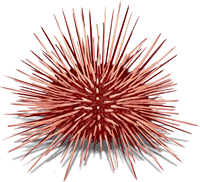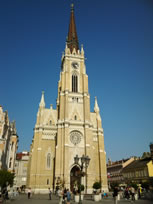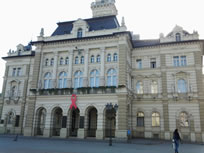The Polyglot Gathering in Berlin last week was fantastic and I enjoyed everything about it. The organizers did an excellent job and everything went well, with only minor hitches. Many other people helped things to run smoothly, and gave talks and/or arranged discussions and language practise sessions.

Venue
The venue was a huge hostel/hotel near Berlin’s Hauptbahnhof (main station), and not far from famous places like the Reichstag (home of the German parliament) and the Brandenburg Gate. It was equipped with hotel and hostel-style rooms, a dining hall in the basement, a reception area with seating and a games section on the ground floor, and a roof-top bar on the 5th floor. The gathering itself took place mainly in function rooms on the 5th floor, with a large room for the talks and activities and two smaller rooms for discussions and talks. One of the smaller rooms also served as a tea room – Gufujo (owl room in Esperanto) – in the evenings for those looking for somewhere quieter than the bar for a chat. There were also spontaneous outbreaks of polyglottery in other parts of the venue, and outside as well.

Program
The program included lectures, talks, discussions, games, and plenty opportunities to practise languages and to talk about language learning, language and languages – or polyglottery as I like to call it. The talks and discussions ran from 9am to 1pm, with two hours for lunch, and from 3-6pm. In most time spots there were two or three things going on at the same time, so you couldn’t go to everything. Fortunately the talks were all videoed and the videos will appear online when they have been edited, so I can watch the ones I missed, and those who weren’t there can watch all the ones that interest them. The program booklet was printed several months before the gathering, so there were some changes, and people filled in empty spots with talks on a variety of language-related topics, and other activities.
The talks I went to include ones on Proto-Indo-European, careers for polyglots, neuroscience and language learning, practising languages in virtual words, Scots and Scottish English, Welsh; and discussions on passive v active learning, and synesthesia; and introductions to Indonesian, Toki Pona and Macedonian. Some talks were quite academic, others were more informal. All were interesting.
On the first evening there was an international culinary festival with food and drink from many different countries. There were polyglot games on the subsequent two evenings, and an international culture evening with songs and poems in many different languages on the final evening. I started it off with a song in Welsh – Lisa Lân, and my Manx/English song about seagulls and chips – Spollagyn son tey / Chips for tea, and finished it with my song Everyday Adventures, which all went down well.
Here’s me singing Lisa Lân and Spollagyn son tey / Chips for tea (videoed by David J. James):
The most impressive contribution was Richard Simcott singing Let it Go from Frozen in some 20 different languages from memory:
Participants
There were some 230 participants there from all over the world ranging in age from teenagers to pensioners. All spoke at least two languages, and many spoke quite a few more – I think the average number of languages spoken there was around four or five, with a number of people who speak ten or more languages. There were plenty of students there who are studying languages, and many other subjects, as well as people who run language-related businesses, or work as translators, writers, journalists, lawyers, engineers, teachers, and many other professions. Whatever our background, we all shared a passion for languages, and were interested in finding out about other peoples, countries and cultures.

Highlights
Meeting so many other polyglots and being able to talk in many different languages and about languages and language learning was wonderful. I don’t often get to do this as I only know a few other polyglots where I live, so the gathering was fantastic for me. I didn’t need to suppress or hold back any of my enthusiasm for languages, as I usually do to varying degrees when talking to people who don’t share my passion. Everyone was friendly, interesting, and had different stories to tell, and I now feel like a part of the polyglot community. Before the gathering I had watched videos and read blogs and forum posts, and even commented from time to time, so I was familiar with a number of polyglots with an online presence, but felt that I was kind of on the periphery of the community. Few people recognised me, but many were familiar with Omniglot, and were happy to meet the guy behind it.
I found the talks, discussions and other activities interesting and fun, especially the discussions on synesthesia, and on raising bi/multilingual children – I don’t have any kids, but my niece is being raised bilingually in English and Russian, and quite a few of my friends are raising their kids with two or more languages, especially English and Welsh.
I would recommend this kind of event to anybody interested in languages, and I’m looking forward to the Polyglot Conference in Novi Sad in Serbia in October.





